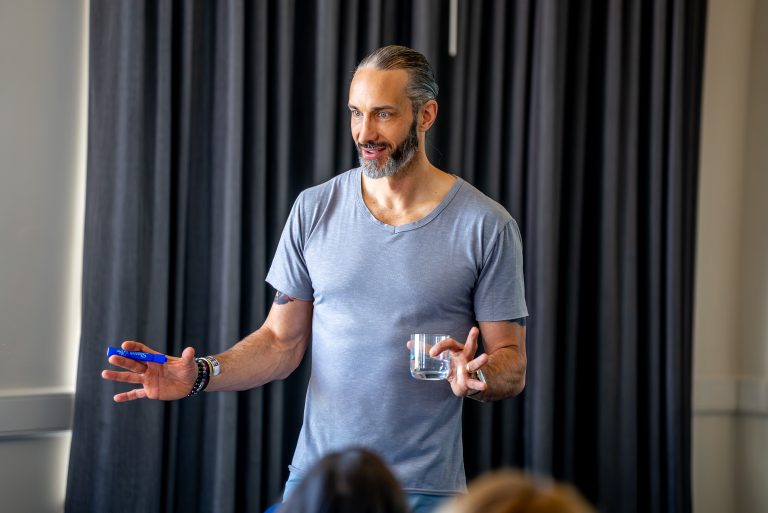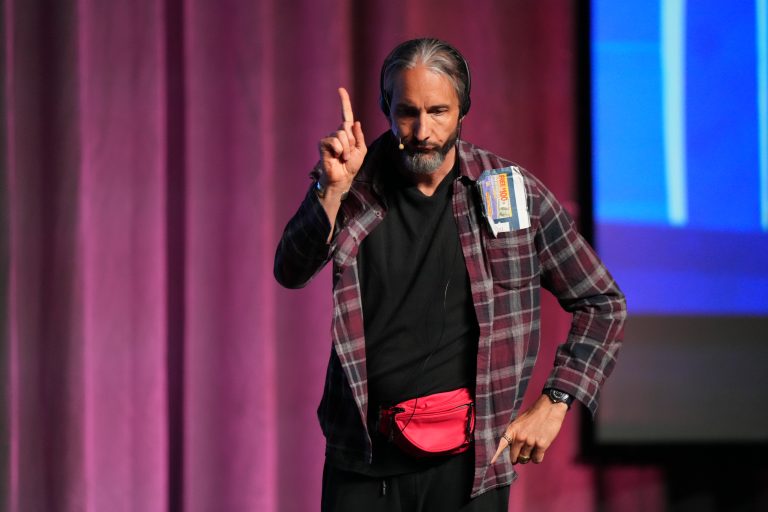“Do as I say, not as I do.”
Ahhhh, that is the mantra of many so-called “financial gurus.”
Why would they tell us to do one thing, while they do something else?
Are they hypocrites or liars?
What is their agenda?
It comes down to this…
They don’t think people will do what is best for them and assume the worst.
They don’t think people will put in the work, or they aren’t capable of the work, or that it would be dangerous for them to create real wealth by starting a business, investing in real estate, or leveraging money.
To “protect” the people with the least ability, least willingness, least discipline, least opportunity, and most reckless…
…the advice of budgeting, cutting back, limiting spending, scrimping, saving, deferring, delaying, and not thinking is rampant.
This is what I call “lowest common denominator” advice. It is devoid of accountability, neglects knowledge and personal growth, and limits wealth.
If we give advice based upon what the least of us will do, the advice is watered down and hurts value creators.
Dave Ramsey may be the most well-known financial guru. He gives the lowest common denominator advice while he makes his money with intellectual property, businesses, and real estate.
If you are spending more than you make, he might be the right person for you. But if you are abundant, willing to invest in yourself, do the work to figure out your Investor DNA, and become economically independent, his advice is harmful and limiting.
It is easy advice to say budget, diversify, automatically put money in a retirement plan. It takes more work, and intelligence, to create economic independence.
Creating cash flow with investments requires a skillset. Adding money to an ETF takes paperwork so it can come out of a paycheck automatically—lowest common denominator.
When rooted in scarcity, our perspective limits the results. Our money story is shown in our daily life, the willingness to learn, to invest in ourself and grow.
How is wealth created? How do financial institutions and billionaires invest? Not at all how Dave or Suze Orman teach.
I read Tony Robbins book, Money: Master the Game, a decade ago. This book called out the unnecessary fees people were paying that didn’t add to performance—great.
But in the book, Tony interviews some brilliant minds and billionaires. As he asked them what people should invest in, turns out they made recommendations that were not at all how they made money.
Nope. It wasn’t how they made money.
The investor of the index fund told people to put money in index funds, but he made his billions creating index funds. The investor of the discount brokerage account told them to, wait for it, to put money in these accounts.
They did one thing to earn their wealth, and then taught the automatic, lowest common denominator strategies to others.
The billionaires all created businesses, invested in hedge funds and private capital, and invented models that impacted millions of people.
The lowest common denominator investor puts money things outside of their control, influence or knowledge. They are at best speculators.
Investing is a process of developing human life value. Take the time, create the time, and know your investor DNA. Skip steps at your own peril.
You can’t shrink your way to wealth and live your best life.
Wealth is a byproduct of a life well-lived. Wealth cannot be reduced to a number on a spreadsheet or balance in a retirement. Wealth is a way of life, a state of being, a mindset.
Take someone who is unhealthy and dying. What good does money do if they can’t buy back their health? If they can’t buy back the lost memories? Or can’t buy back the lost relationships?
Wealth and quality of life go hand-in-glove. Wealth is meaningless without quality of life. That is why it is so elusive to those who cut back and try to shrink their way to wealth.
Yet the common advice is to limit our quality of life and sacrifice today for an unknown future. Sacrifice today for a better tomorrow. Work hard, save more, and enjoy less.
Fuck that.
I say, figure out what is important, what provides growth and energy, and go all in on that, rather than without the support.
If you are doing what you chose to do, if you are finding ways to love what you do and love your life, if you are finding ways to improve yourself, then why sacrifice?
Make choices and stick to them. Set standards and reach for them. Live a life that is inspired and inspiring, not minimalized and meager to feel safe or scrimp away.
We spend energy when we budget. We spend time when we sacrifice. We lose life when we see an expense as negative.
An expense is merely how we employ others and utilize our money. If we do all we can to stop spending, we stunt exchange, we limit wealth. We slow money down. We eliminate velocity.
We do too much on our own at the expense of what we do best. We choose not to improve ourselves or invest in our skills so we can see numbers rise temporarily in an account.
Hold on to what you have. Save what you can. This is the voice of fear. This is the traitor known as worry.
This is the lowest common denominator.
It can keep you out of debt as it delays and limits your life. It diminishes your best, hides your talent, and hinders your richest life.
Cutting back is at odds with velocity, at odds with exchange, and at odds with investing in your abilities. The cheaper we become, the less we grow. The less we utilize the skills of others. The more demand on our time and on our mind.
And the bad advice doesn’t stop there.
The advice to do it yourself, find the cheapest option, to never use leverage under any circumstance, and keep small limits the acquisition of productive assets or utilizing productive people.
Where is the conversation of impact? The conversation of wealth. The commitment to vision. The quest for excellence and progress.
Investing in everyone else’s vision before our own is ludicrous. Sly, but ludicrous.
You’ve heard it before: investing early, often and always in plans where money is locked away, tax-deferred, and funded by ETFs and mutual funds moves money away from someone developing their vision.
When you grow yourself, when you grow your knowledge, when you grow your skills, you can improve your cash flow and value.
The money story so many have adopted goes like this:
- “I don’t have the time.”
- “I have someone I trust.”
- “I’m in it for the long haul.”
- “I’m diversified.”
- “Sometimes it goes up and sometimes it goes down, but it mostly goes up,
…etc.
Fuck this. It doesn’t work.
Even if you end up with some money, what kind of life will you be living? How fulfilling will it be? How much happiness will it bring?
If you don’t think you have the time or expertise, and hand your money over, you are prey for the wolves of Wall Street. You put your future at risk due to bad ideas and philosophies sold to you today.
If you are not willing to grow your knowledge or invest the time, there is a different option: DO NOT INVEST.
Save instead. If you don’t develop your human life value, skills and abilities, you would be better off paying off loans and optimally funding whole life cash value.
Even if you are a great investor, funding a policy is a great way to store capital until the right opportunity comes. If you won’t learn, at least don’t speculate and gamble as well.
Savings is preferred to the volatility of the market. Do the ups and downs take your emotions for a ride?
Then stop. Do what you can count on.
Optimally funded whole life is a self-completing plan.
- If you die early, the death benefit comes to your family tax-free as an economic value replacement.
- If you are disabled, the premiums continue.
- If you are sued, the money is protected from financial predators.
- If you live beyond life expectancy, you can tap into your cash value or utilize your death benefit to improve cash flow from other assets, effectively turning small assets into big ones (read What Would the Rockefellers Do? by myself and Michael Isom for more info).
- If there are opportunities along the way, you can access your cash.
- When you go to use the cash there are multiple methods to avoid taxes.
- If you need long term care in the future, you can tap into your death benefit while alive.
- If interest rates change and bonds lose value, your values are guaranteed and locked in (plus enhanced with dividends).
You get the picture.
But if you are willing to grow yourself, you can grow your wealth. If you are willing to invest in yourself you can become a better investor. If you are willing to live your Soul Purpose you can be fulfilled and impact people, making more money.
If you don’t know what you are doing, you become bait for value extractors posing as value creators. Entrepreneurs selling their business get screwed by venture capitalist snakes all the time. Savvy in business, novice in exits.
The person who doesn’t learn how to create cash flow with businesses, intellectual property, real estate, or private capital may be better off with cash value and no loans.
I saw this firsthand with dentists working with Whitehall Management twenty to thirty years ago and having millions by paying off loans and funding municipal bonds. “Safe and secure,” without much thought.
What will you commit to moving forward? A lowest common denominator life? Or your richest life?
I’m committed to conversations and consciousness leading to wealth. I’m doubling down on my human life value and growth. I’m betting on me. I’ll bring people along for the journey. Sharing in this blog, my books, and YouTube.
For those who know me personally, we will be hiking, having wealth dinners, and I’ll be asking questions and learning more from you. I’m investing more time with my top five inspirational and intelligent friends.
Who elevates your conversations?
I recently hosted a dinner in Canada with my strategic partner Stephen Devlin. It was a wonderful group of people that left me feeling uplifted, excited, and wealthier.
We spoke of legacy, philanthropy, a life well lived, investing heavily in experience, investing in our heirs, and building skills. People gave their best insights and shared their financial philosophies.
We laughed, we learned, and everyone left grateful and expanded.
I feel the same way at my Cash Cabin immersions. Uplifted, excited, and energized. How can you do more of what you love with the people you love and learn along the way?
The answer is your key to your richest life.
Ready to Stop Guessing With Your Money?
Most financial advice tells you to save more and spend less. That’s a losing game. Garrett’s free book Killing Sacred Cows reveals why the conventional wisdom is costing you—and what to do instead.
Do it yourself? Try the free Relationship Currency tool on X1 Wealth.
Frequently Asked Questions
What is the lowest common denominator dilemma?
It’s when financial gurus give advice for the least capable, least willing people—and apply it to everyone. They don’t think you’ll do the work, so they tell you to save, avoid debt, and lock money away in 401(k)s.
Why do financial gurus say one thing but do another?
Because they assume the worst about people. They think you can’t handle real investing, won’t put in the work, or are too risky to trust with strategies like leveraging debt or starting a business. So they protect you by limiting you.
Is generic financial advice hurting me?
Yes, if you’re capable of more. Cookie-cutter advice designed for the lowest common denominator keeps you from building real wealth. You’re told to avoid debt, save everything, and defer life—while the gurus build businesses and invest in cash flow.
How do I get better financial advice?
Stop listening to mass-market gurus who preach scarcity. Seek advisors who understand your Investor DNA, help you build cash flow, and teach you to leverage money as a tool—not as something to fear or hoard.



